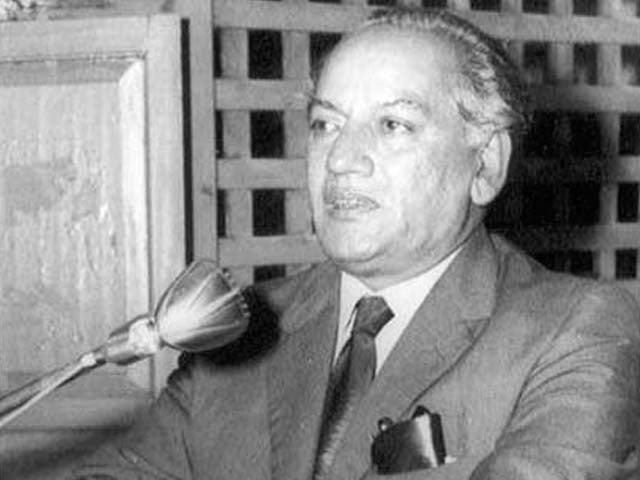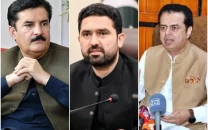Faiz’s poetry continues to inspire progressives
The silver lining is like what one saw in Egypt this week, struggle leads to change.

Faiz’s poetry continues to inspire progressives
Faiz was a pioneer of the progressive movement in Urdu literature which in the first half of the last century was a driving force and influenced the writings of both poets and prose writers. It was in the pursuit of these ideals that Faiz spent years of incarceration after independence. It would look strange today to the forces of militancy how they fail to achieve through guns what this soft-spoken man achieved through the softness of his words.
Faiz’s poetry is about life and the human condition, which he sought to elevate to a level of equality and dignity which remains the dream of all mankind. This immediately strikes a chord in the hearts of the oppressed and the exploited masses.
Faiz was not a just a poet, however. He had a multi-faceted personality. He was a world class journalist and editor, a trade unionist, a thinker and most important of all, a teacher. A number of institutions which have played a very useful role in the promotion of culture and arts in Pakistan, like the National Council of the Arts, the National Film Development Corporation, the Academy of Letters and the Book Foundation were created in the public sector due to his interaction with former Prime Minister Zulfiqar Ali Bhutto.
He rose to international prominence after winning the Lenin Award and later served as the editor of “Lotus” in Beirut, when the Palestinian cause was being championed by a leader like Yasser Arafat, who was Faiz’s personal friend.
He never bothered to respond to the campaigns of vilification that were launched against him by the right-wing press during the days of the Zia dictatorship in the 1980s when the religious parties had aligned themselves with autocrats.
His fellow poet Iftikhar Arif says there was a ‘mohni’ in the affectionate glitter of his eye that won many hearts. Unusual for a poet, he was a man of few words in person but his company was sought and enjoyed by many.
Nearly all of his great romantic and revolutionary poems have been sung by legendary singers like Noor Jehan, Mehdi Hassan and Iqbal Bano through which he lives in the hearts and minds of all. Critics of literature place him next to Ghalib and Iqbal.
Published in The Express Tribune, February 14th, 2011.



















COMMENTS
Comments are moderated and generally will be posted if they are on-topic and not abusive.
For more information, please see our Comments FAQ